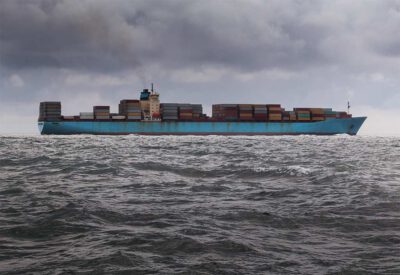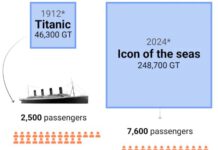 The stage is set for the UN to finally call time on greenhouse gas emissions from international shipping, following a week of climate talks at the International Maritime Organization (IMO) in London. While the IMO failed to adopt a concrete shipping decarbonisation target for shipping this week, there was widespread support for eliminating the industry’s emissions by 2050 and for setting interim targets to achieve this goal. Countries must now use the remaining time before concluding the negotiations next year to focus on strengthening this to 2040 and on the IMO adopting an ambitious interim 2030 target that will deliver steep emission cuts in this decade.
The stage is set for the UN to finally call time on greenhouse gas emissions from international shipping, following a week of climate talks at the International Maritime Organization (IMO) in London. While the IMO failed to adopt a concrete shipping decarbonisation target for shipping this week, there was widespread support for eliminating the industry’s emissions by 2050 and for setting interim targets to achieve this goal. Countries must now use the remaining time before concluding the negotiations next year to focus on strengthening this to 2040 and on the IMO adopting an ambitious interim 2030 target that will deliver steep emission cuts in this decade.
The Marine Environment Protection Committee (MEPC 79) meeting showed a dwindling opposition (10 countries) to higher ambition for shipping since MEPC 78 in June (24 countries). A clear majority of IMO member states (32 countries) are in favour of setting a zero greenhouse gas emissions goal by 2050. This would bring the industry closer than ever before to the ambition set out by the Paris Agreement.
Civil society groups, several countries as well as influential IMO observers – the World Bank, Maersk Mc-Kinney Moller Centre, the Institute of Marine Engineering, Science and Technology and the United Nations Framework Convention on Climate Change (UNFCCC) – are also calling for an additional, ambitious absolute emission reduction target for 2030.
Climate science insists a significant drop in emissions before the end of this decade is a prerequisite for meeting the 1.5°C climate-heating limit. Acting early will also save the industry around $100 billion per year in the costs of decarbonisation, preserving this capital for the important task of shipping’s green transition and of supporting the most vulnerable.
Countries and the industry must follow the climate science and use this unique momentum at the IMO to commit to halving emissions from ships by 2030 and reaching zero by 2040.
The recent COP27 Climate Summit in Egypt demonstrated that this transition is technologically feasible and the industry is preparing for it. The IMO can play a key part by formalising this process under its revised climate strategy, and by adopting climate measures already at its disposal to accelerate the process. This includes clamping down on short-term climate pollutants, like black carbon and methane, which would eliminate up to 21% of emissions from ships today.
A combination of an ambitious fuel standard and a global carbon levy could also contribute towards rapid emission reduction. A levy of at least $100/tonne of carbon in particular will generate tens of billions of dollars to not only drive the uptake of zero-emission propulsion in the industry but also to support the most vulnerable.
The needs of Small Island Developing states and Least Developed Countries must be taken into account at every step of the way when developing and implementing these measures in the future.
read more seas-at-risk.org/press-releases/go-hard-and-early-uns-historic-opportunity-to-act-on-shipping/











